
Politics
14:30, 09-Mar-2017
One Chinese citizen turns 60 in every four seconds
Updated
10:59, 28-Jun-2018
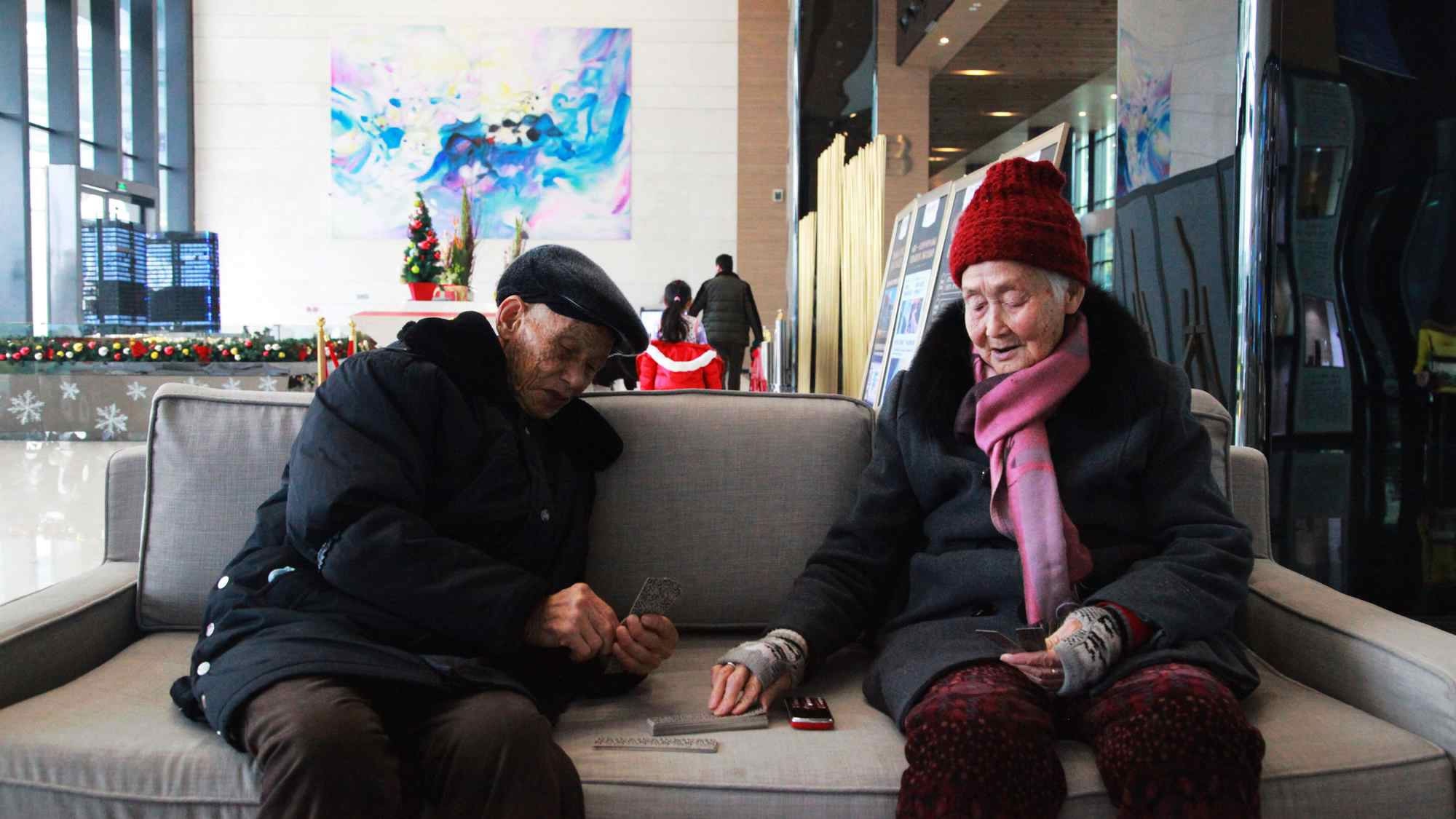
The proportion of China's population which is officially "old" is growing all the time, with someone turning 60 every four seconds. China will respond to its aging crisis through healthcare reform including improving elderly care services, former Chinese vice minister of health Huang Jiefu promised on Thursday.
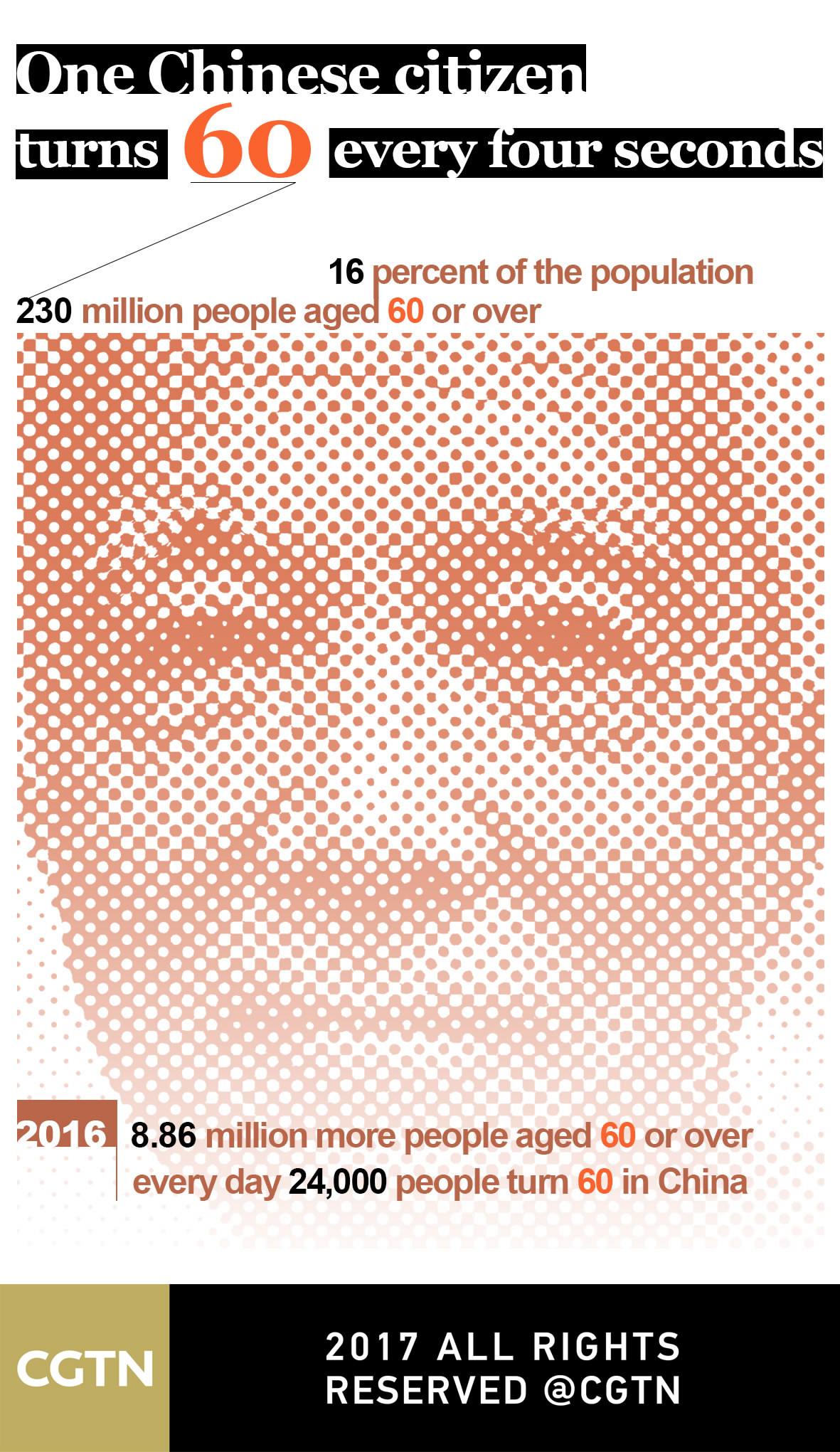
Huang, also a CPPCC member, said at a press conference on the sidelines of China’s annual “Two Sessions” political meetings that the government has set goals and measures ensuring all residents will be covered by basic old-age insurance and medical insurance. “China’s aging population should not be considered a disaster, but one of the major indications of a modern society,” he said, during an event where four other CPPCC members also took questions from the media.
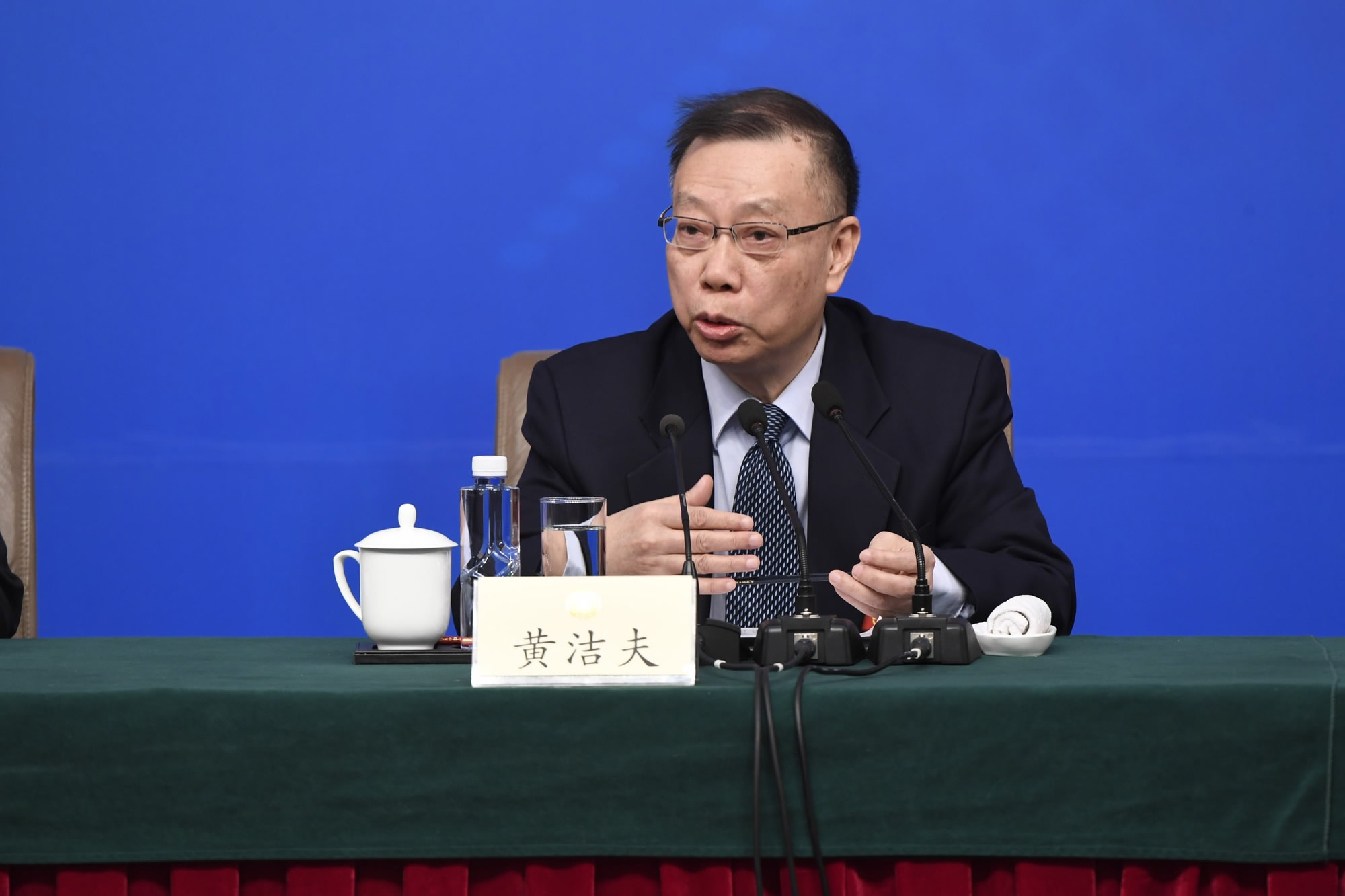
Huang Jiefu speaks at a press conference during the Two Sessions in Beijing on March 9, 2017. /CFP Photo
Huang Jiefu speaks at a press conference during the Two Sessions in Beijing on March 9, 2017. /CFP Photo
China is home to more than 230 million people aged 60 or over, or 16 percent of the population, and the numbers are growing due to decades of strict family planning policy and increased life expectancy.
“We gained an additional 8.86 million people aged 60 or over last year alone. It means that every day 24,000 more people turn 60 in China, and one more person every four seconds,” said Huang, stressing that the government had attached great importance to the issue.
As China’s population ages, the country faces the challenge of making sure there is enough money to pay all the pensions owed to the elderly.
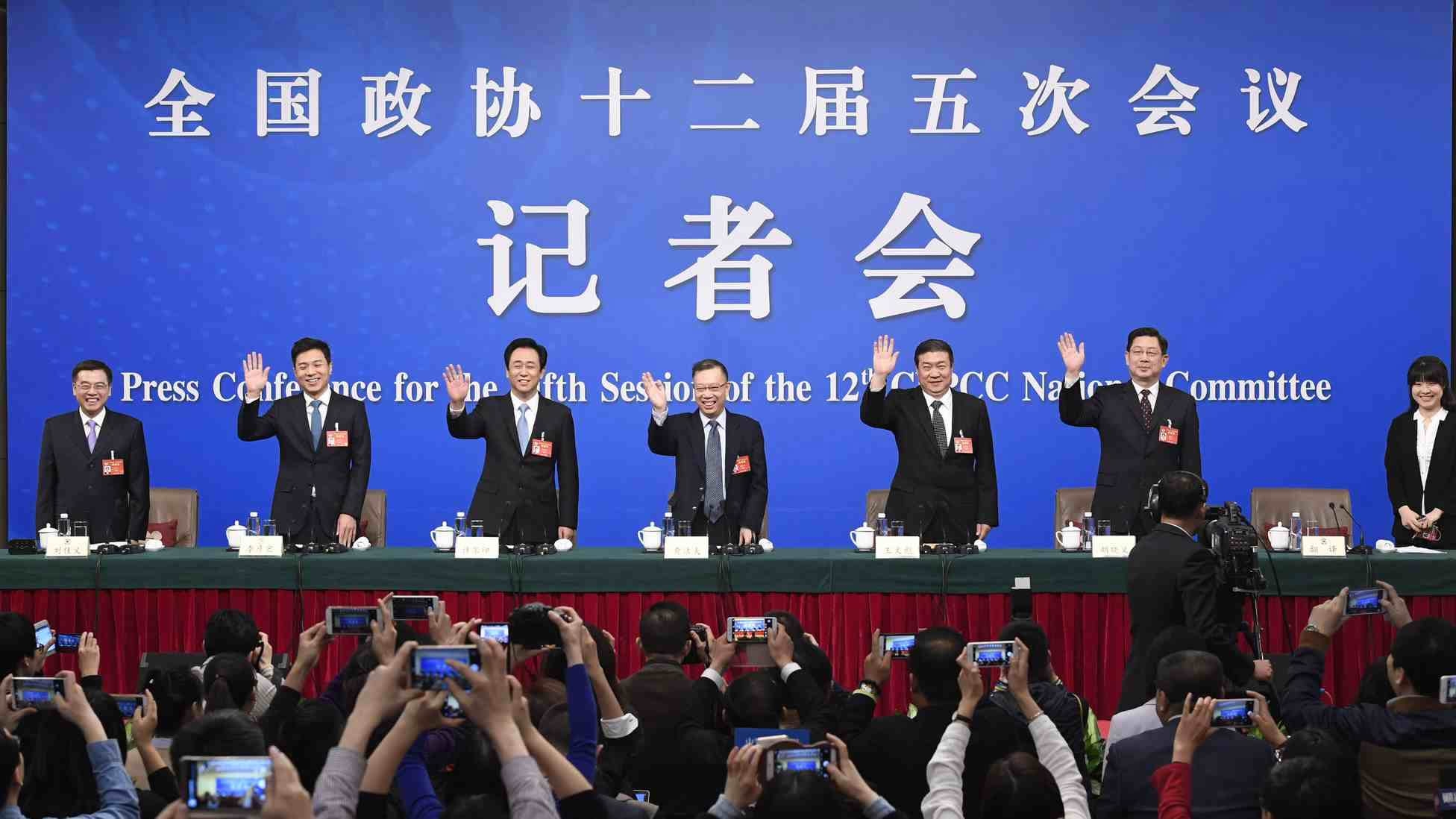
Five CPPCC members (in the middle) gestures at a press conference during the Two Sessions to talk about China’s efforts to improve people’s livelihood on March 9, 2017. /CFP Photo
Five CPPCC members (in the middle) gestures at a press conference during the Two Sessions to talk about China’s efforts to improve people’s livelihood on March 9, 2017. /CFP Photo
Pensions are traditionally held by banks or used to purchase treasury bills, which yield 2 to 3 percent a year. These yields are far below the market average and sometimes cannot keep up with inflation, leading to depreciation of funds, even though pension fund returns have been on the rise.
The National Council for Social Security Fund (NCSSF), which invests in financial markets, on the other hand, has often earned annual average returns of over 8 percent on its investments over the past decade.
Pension insurance funds are currently restricted from investing in financial markets, but a pilot scheme has already seen the provinces of Guangdong and Shandong entrust the NCSSF to manage 100 billion yuan each of their pension funds.
Not Just about aging population
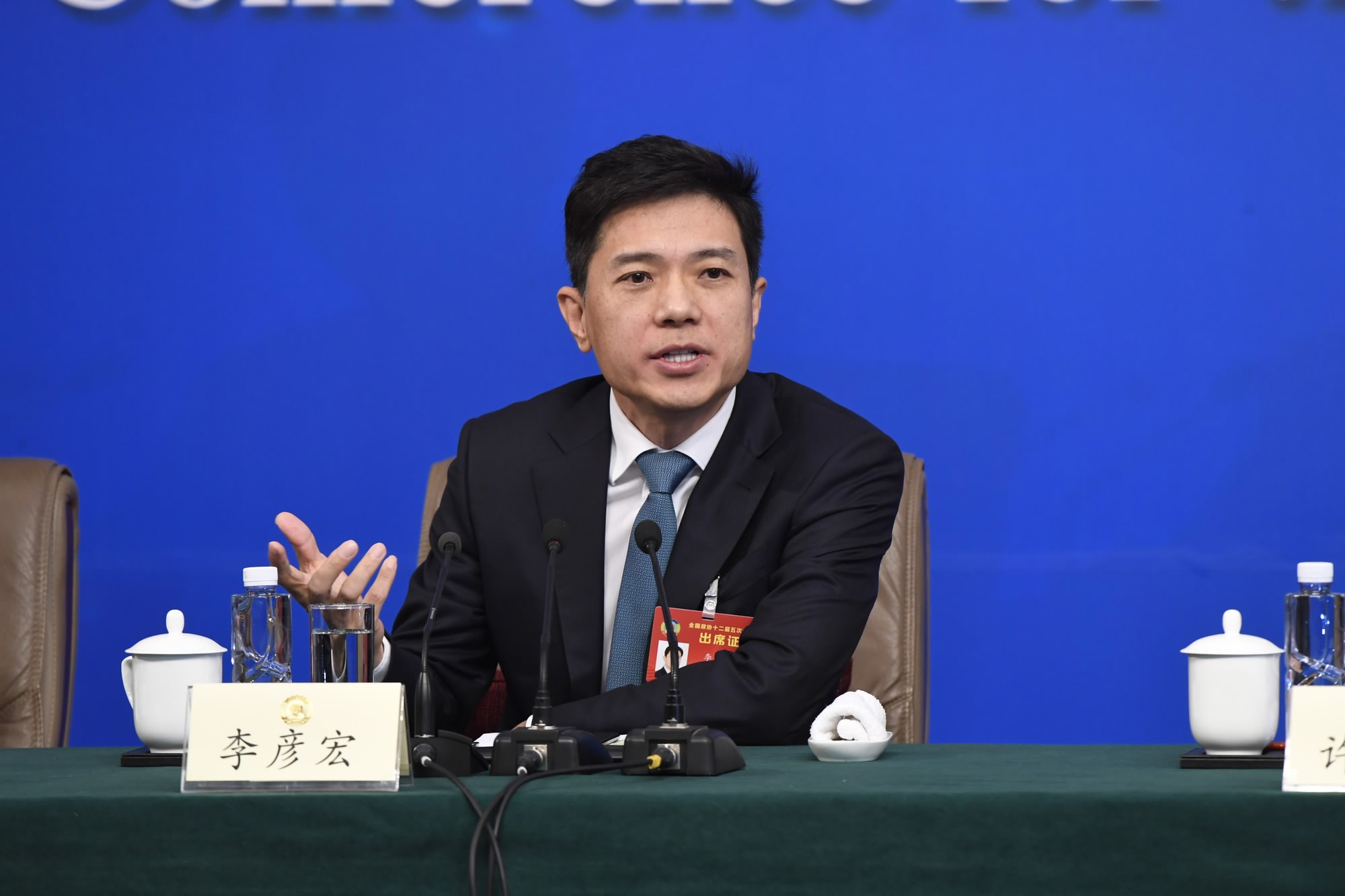
Robin Li speaks at a press conference during the Two Sessions in Beijing on March 9, 2017. /CFP Photo
Robin Li speaks at a press conference during the Two Sessions in Beijing on March 9, 2017. /CFP Photo
Also at Thursday’s press conference, Robin Li, a CPPCC member and the CEO of leading Chinese search engine Baidu, talked up the potential of a new decision to allow private companies to get involved in state-managed engineering projects.
China’s R&D expenses accounted for 2.5 percent of GDP in 2016. State owned Enterprises (SOEs) spent less than 2 percent of their revenue on R&D, while privately-owned companies like Baidu spent around 15 percent of their revenue on R&D in the past two years, according to Li.

SITEMAP
Copyright © 2018 CGTN. Beijing ICP prepared NO.16065310-3
Copyright © 2018 CGTN. Beijing ICP prepared NO.16065310-3